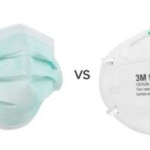Sign up here for the vaccination
COVID-19 mRNA Vaccine Healthfile
Immunization has saved more lives in Canada in the last 50 years than any other health measure.
What is the COVID-19 vaccine?
The COVID-19 vaccine protects against infection from the severe acute respiratory syndrome coronavirus 2 (SARS-CoV-2) that causes COVID-19. The vaccine causes your body to produce antibodies that will protect you from getting sick if exposed to the virus. Health Canada approved the vaccine.
Who should get the vaccine?
The Pfizer-BioNTech COVID-19 vaccine is being provided to those who are at increased risk of exposure to the virus and those most at risk of serious complications. It will only be available for certain groups of people at first due to limited supply of the vaccine. As the vaccine supply increases, other groups of people will be able to get the vaccine. For information on when the vaccine will be available for you visit the BCCDC’s COVID-19 vaccine eligibility page at: http://www.bccdc.ca/health-info/diseases-conditions/covid-19/covid-19-vaccine/eligibility
If you had, or may have had, COVID-19 you should still get the vaccine. This is because you may not be immune to the virus that causes COVID-19 and you could get infected again and become sick.
How is the vaccine given?
The vaccine is given by injection as 2 doses
21-28 days apart. It is important to get both doses of the vaccine for full protection.
It is important to keep a record of all immunizations received. Be sure to bring your immunization record when returning for your second dose.
What are the benefits of the vaccine?
The vaccine is the best way to protect you against COVID-19, which is a serious and sometimes fatal disease. In clinical trials, those who received the vaccine were 95% less likely to become sick with COVID-19. When you get immunized, you help protect others as well including those who are unable to get the vaccine.
What should I do after I get the vaccine?
After you get the vaccine, continue to follow public health recommendations such as:
- Wash your hands or use hand sanitizer
- Physical distance
- Wear a mask where required
You should not receive any other vaccines until 28 days have passed after you receive the second dose of the COVID-19 vaccine.
What are the possible reactions after the vaccine?
Vaccines are very safe. It is much safer to get the vaccine than to get COVID-19. Common reactions to the vaccine may include soreness, redness and swelling where the vaccine was given. Other reactions include tiredness, headache, fever, chills, and muscle or joint soreness. These reactions are mild and generally last 1 to 2 days. If you have concerns about any symptoms you develop after receiving the vaccine, speak with your health care provider or call 8-1-1 for advice.
Serious side effects of the vaccine were not seen in the clinical trials. The people who received the vaccine in the trials continue to be followed for any long term side effects from the vaccine. A number of processes are also in place in Canada to monitor the safety of the vaccine as people get immunized.
Acetaminophen (e.g. Tylenol®) or ibuprofen (e.g. Advil®) can be given for fever or soreness. ASA (e.g. Aspirin®) should not be given to anyone under 18 years of age due to the risk of Reye Syndrome.
For information on Reye Syndrome, see HealthLinkBC File #84 Reye Syndrome.
It is important to stay in the clinic for 15 minutes after getting any vaccine because there is an extremely rare possibility, less than 1 in a million, of a life-threatening allergic reaction called anaphylaxis. This may include hives, difficulty breathing, or swelling of the throat, tongue or lips. Should this reaction occur, your health care provider is prepared to treat it. Emergency treatment includes administration of epinephrine (adrenaline) and transfer by ambulance to the nearest emergency department. If symptoms develop after you leave the clinic, call 9-1-1 or the local emergency number.
It is important to always report serious or unexpected reactions to your health care provider.
Who should not get the COVID-19 vaccine?
If you have any symptoms of COVID-19 you should not get immunized at this time. Speak with your health care provider about your symptoms and get tested for COVID-19.
Speak with your health care provider if you:
- Have had a life-threatening reaction to a previous dose of the COVID-19 vaccine or to any part of the vaccine including polyethylene glycol. Polyethylene glycol is found in many cosmetics, skin care products, laxatives, cough syrups, bowel preparation products for colonoscopy, and some foods and drinks.
- Have an immune system weakened by disease or medical treatment
- Have an autoimmune disease
- Are pregnant, may be pregnant or are planning to become pregnant
- Are breastfeeding
- Have received a monoclonal antibody or convalescent plasma for treatment or prevention
- Have received a vaccine in the previous 14 days
If you have a cold or have recently become ill you shouldn’t get the vaccine until you have recovered. This will help to distinguish any side effects of the vaccine from symptoms of other illnesses.
What is COVID-19?
COVID-19 is an infection of the airways and lungs caused by the SARS-CoV-2 coronavirus. Symptoms of COVID-19 can include cough, shortness of breath, fever, chills, tiredness and loss of smell or taste. While some people with COVID-19 may have no symptoms or only mild symptoms, others can have a serious illness that can lead to hospitalization or death. Serious illness is more common in those who are older and those with certain chronic health conditions such as diabetes, heart disease or lung disease. For some people symptoms of COVID-19 can last for weeks or longer. The long term effects of COVID-19 on a person’s health are unknown.
How is COVID-19 spread?
The virus that causes COVID-19 is spread from person to person by coughing, sneezing, and sometimes, when a person talks or sings. It can also be spread by touching an object or surface with the virus on it and then touching your eyes, nose or mouth.
For more information on COVID-19 vaccines, visit BCCDC’s COVID-19 vaccine page http://www.bccdc.ca/health-info/diseases-conditions/covid-19/covid-19-vaccine


